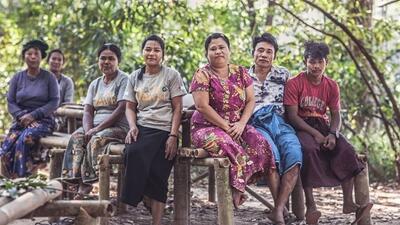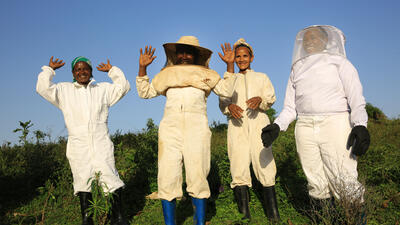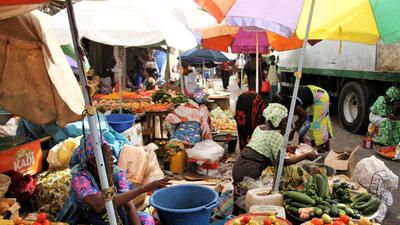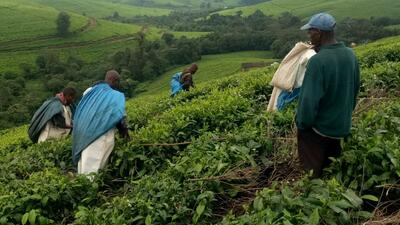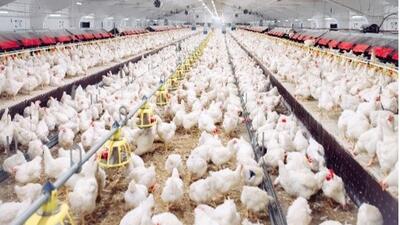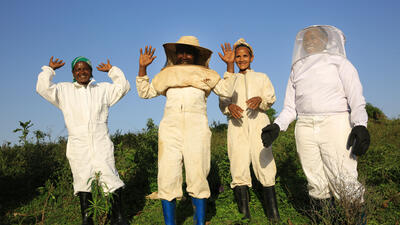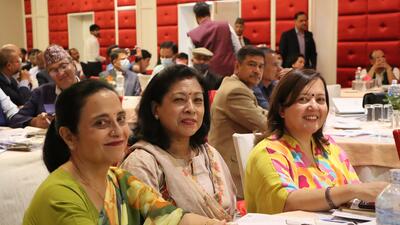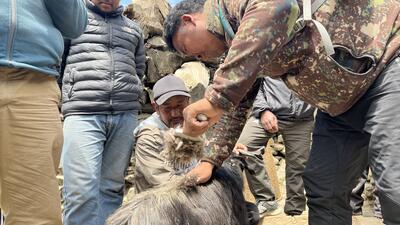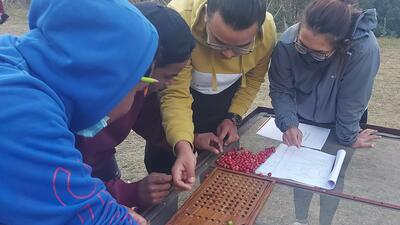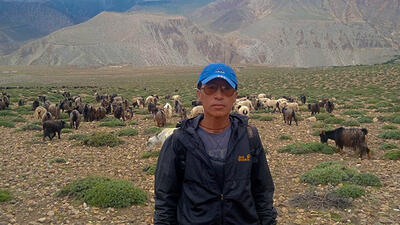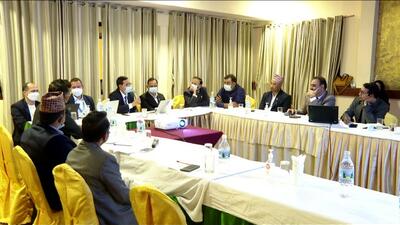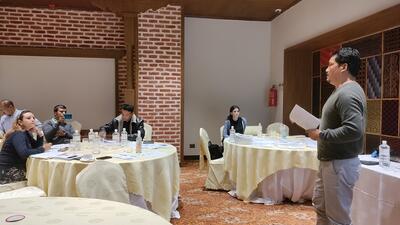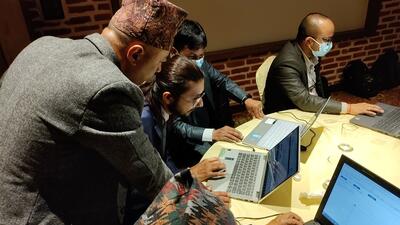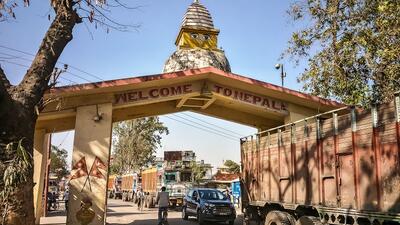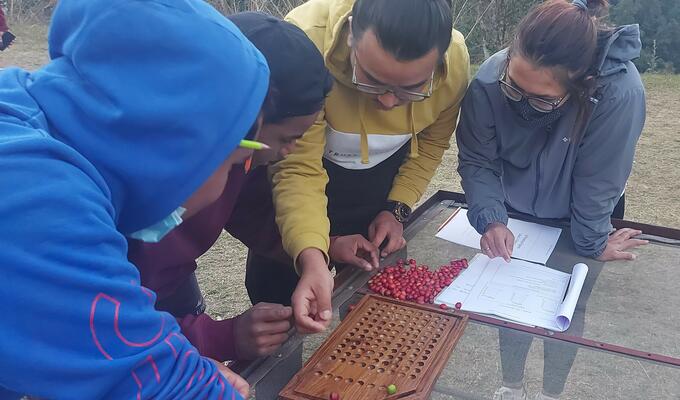
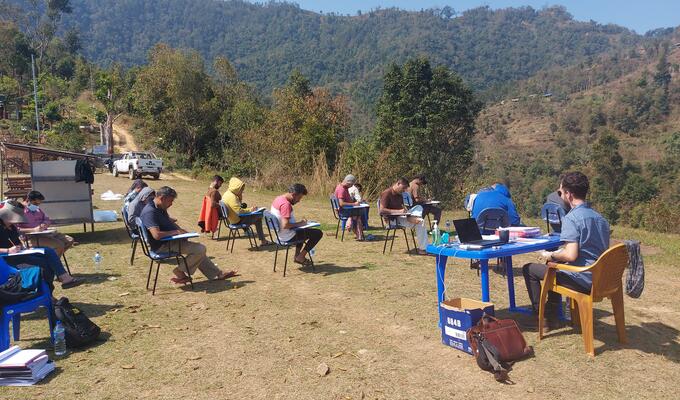
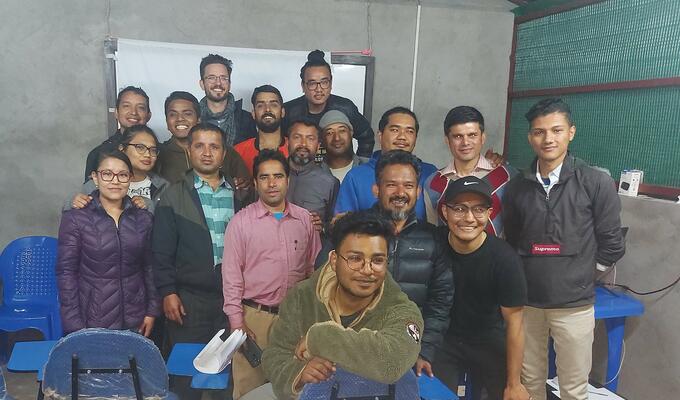
Coffee processing training prepares Nepali professionals for global market
Over a dozen coffee professionals are now ready to adopt their products for global specialty markets thanks to ITC training.
Coffee professionals from producing companies based in Nepal, including Lekali Coffee Estate, Royal Aroma Himalayan Coffee, Lake City Coffee and Alpine Coffee are a step closer in competing on the global coffee market after having attended a six-day training in the Gorkha district of Nepal in March.
More specifically, they can now build new value within their products, having learned to intentionally use different processing methods to achieve distinct flavour profiles as well as techniques that minimize risks, variability, and improve the coffee quality through processing.
The sixteen participants were impressed by the 'very practical techniques and skills' they had acquired during the intensive workshop on processing, delivered by the International Trade Centre (ITC), under its EU-Nepal Trade and Investment Project (TIP), and the Coffee Quality Institute.
During the training the participants had visited farms where they touched and felt coffee cherries. Similarly, they experienced different phases of processing coffee beans, such as pulping, fermenting, washing and drying them.
"We learned that we have to be very sensitive and careful at each step. Or else, we may not end up producing quality coffee," said one of the professionals, Yubaraj Darnal. "Those were things we already knew, but just in theory. This field visit gave us really rich knowledge, I wish all Nepali coffee professionals get such trainings," he added.
Organic farm manager Kshitiz Gurung also confirmed the importance of combining field experience with theory. "I'm happy that I learnt so many things here. I'm going to share this with many coffee farmers and professionals, they'll be greatly benefitted," he remarked.
Farm to fork: Addressing the challenges in the Nepali coffee sector
Europe, Japan, the Republic of Korea, and the United States have high demand for Himalayan Specialty Coffee from Nepal. However, producing coffee with consistent quality to cater for the highly segmented consumer taste and preferences has been a challenge. A 'farm to fork' approach that ensures quality at all levels of the value chain is a priority for policymakers, and coffee professionals alike.
"I am happy that the training was organized on a farm itself," said Govinda Bahadur Karkee, the Joint secretary of the Ministry of Commerce and Supplies. "It is important that the beneficiaries transfer this knowledge and skills to other coffee producers and farmers to improve the quality of Nepali coffee throughout the value chains. This will increase the export of Nepali Specialty Coffee in international markets."
The training built on the introductory level Coffee processing essentials training organized by ITC in collaboration with Coffee Quality Institute in January 2022.
About the project
The EU-Nepal Trade and Investment Programme stands for inclusive growth through regional integration, trade intelligence and participation in global value chains. The project aims at enhancing the capacities of the country's Ministry of Industry, Commerce, and Supplies and the Trade and Export Promotion Centre to formulate trade policies, negotiate trade agreements and implement them effectively. The project helps the sustainable and inclusive development of Nepal's coffee and pashmina value chains, focusing on export development.




